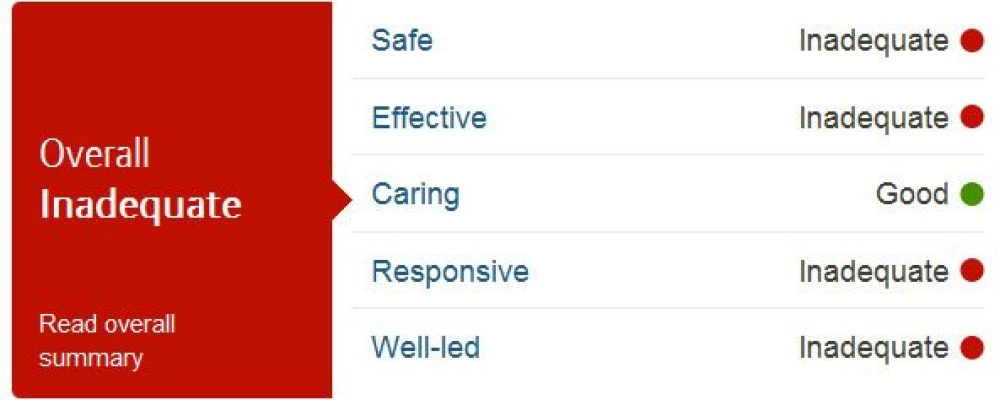Leadership can make or break your care home
Leadership can make or break your care home. It is a wide known fact that outstanding care homes are run by outstanding managers. Excellent leadership reflects the care provided and achieve better outcomes for the people they look after. Very often you hear about those ‘managers’ who turnaround care homes from ‘inadequate’ to a better CQC rating. It seems like they have a magic wand which other managers don’t have. This magic wand is known as ‘leadership’. The leadership to inspire coworkers, to deliver better care, to address concerns and to spread the vision of providing outstanding care for the people they are looking after.
Why leadership matters?
When I became the manager, although my team was very supportive, I didn’t have a clue about how to be an outstanding manager. The induction from the previous manager lasted only a few days. I soon became the captain of the ship. As expected, each day passed on tackling the high waves to reach the destination. Although I knew where the destination is, I wasn’t sure how to get there.
Soon I realised, everyone expects me to be the expert in everything. From complicated clinical issues to fixing a leak in the basement. But I never gave up, I was always open and honest about the things that I didn’t know about, but I made all the attempts to find the right answer rather than teaching my staff the wrong practice. I realised the culture and standards at my care home started building around me. To be specific, my care home became the reflection of my standards.
Let us stop there for a moment, did I say my care home was a reflection of my standards? How about your care home? Recently I went to a Managers forum. I asked them a few questions. “How many of you had a chance to shadow someone before becoming a manager? Did you have a mentor for your manager role? Do you know how managers in other care homes show their leadership skills?”. None of them raised their hands. It was not shocking to me, as I could predict the answer anyway. Most of us become a manager of a care home on a beautiful Monday morning, just getting a weekend to go through the ‘indefinite’ guidance out there.
Real-world is different
Things are different on the floor. What says in the book will not work when you are dealing with humans. Humans are the most unpredictable thing in the world, whether it is in the form of staff or residents? This is where the manager has to become a real leader. You can not tick the competency for ‘people skills’ by just completing the Level 5 Qualification. You do not have to have a high IQ to be a care manager, but you need to have or develop your ’emotional intelligence’ to a higher level to be a ‘people leader’.
What are the existing problems within the sector?
The biggest joke of our industry is, we have competency checks for all sorts of things from checking blood sugars to administering medications, but not for assessing the competency of the ‘leadership skills’ for care managers. Majority of the managers are extremely dedicated and wants to do the best in their role. I am shameful to say we have managers on the other end of the spectrum too.
What happens when your manager is not competent? As I said before, your care home is a reflection of your manager. Whatever your current CQC rating is, it is the reflection of your manager. Around 19% of the care homes are inadequate or requiring improvement, that means nearly 3000 care home managers need to upskill their ‘leadership’ skills. Only 2.38% of the care homes are Outstanding, which means about 380 care managers worked hard to achieve outstanding.
The existence of a ‘knowledge gap’
I am trying to address a ‘knowledge’ gap in here. We have several support programmes to enhance the leadership skills of care home managers. Is this effective in the real-life scenario? How can you benchmark someone’s competency as a manager? How to appraise your manager objectively addressing the areas of improvement needed? Without addressing this ‘competency’ gap, how do managers know the areas they need to improve. Without addressing this how can we solve the ‘variation’ of quality in care delivered across this country?
Being a good leader means, taking every opportunity to learn and develop skills to become a better leader every day. We can’t mess with this anymore, as we are dealing with vulnerable people of our society. Managers need to understand how well they are performing and make improvements to become a better leader every day to lead and inspire the team to deliver outstanding care.
How to assess the leadership?
My thoughts were around this for such a long time. That is why I developed the Care home Leadership Assessment (CLA) Score. CLA Score has two parts, Self Assessment and Peer assessment. Self Assessment can be taken by Managers to understand how well they are performing based on their perception. Peer Assessment is done by the staff about their manager. What you perceive yourself as a leader is so different from what other people see you as a leader. Doing CLA will have a benefit of getting the results objectively with a rating where your leadership stands; Inadequate, Requiring improvement, Good or Outstanding. The assessment contains 98 questions about different aspects of running a care home. CLA Scoring takes about 20 minutes to complete the test, and you will receive a report within two working days.
I aim to bring a benchmarking assessment tool for assessing the competency of care home managers as it is a crucial role in any care home. I am glad to say; CLA Score is approved by ‘Well-led’ project jointly hosted by HEE and West Sussex Partners in Care addressing the care homes rated as requires improvement in the Well-led element of their CQC inspection. There are about 200+ care homes rated Requiring Improvement in Surrey and Sussex alone. It is high time to address the ‘leadership competency’ issue in care homes to improve the overall quality of care. Let us not forget the high-quality care is a reflection of high-quality leadership.





